Advertising
Citroen ad with secret message
Can you figure out what the hidden message is? The answer is below in extended.Hint: Enlarging the image (click on it) will help.

More in extended >>
Posted By: Alex - Wed Oct 13, 2021 -
Comments (2)
Category: Advertising
Follies of the Madmen #517
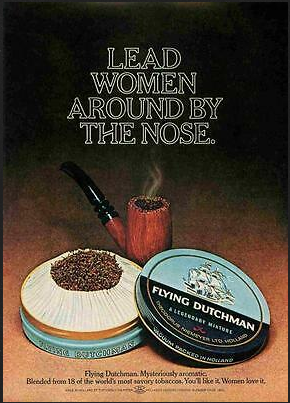
Posted By: Paul - Tue Oct 12, 2021 -
Comments (0)
Category: Business, Advertising, Tobacco and Smoking, Women
Follies of the Madmen #516
Some wild and dubious claims for this metal briefcase.Source.
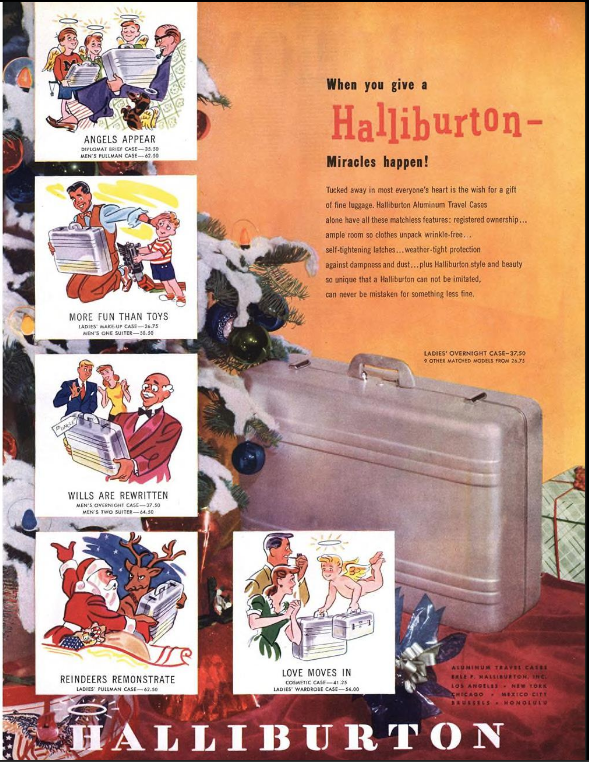
Posted By: Paul - Mon Sep 27, 2021 -
Comments (3)
Category: Business, Advertising, Excess, Overkill, Hyperbole and Too Much Is Not Enough, Family, 1940s
Yes, It’s True!
Really! It's true! It wasn't just a fantastical rumor! Metallic caskets are available again!
Springfield Daily News - Apr 14, 1946
Incidentally, I came across this ad after reading a 1948 article by columnist Doris Lockerman in which she wrote that, "It was reported, but not confirmed, that a convention of morticians once crowned a Miss Metallic Casket."
This led me to a long, and ultimately fruitless, search for any evidence of a 'Miss Metallic Casket'. The above ad was the only minor curiosity related to metallic caskets that I came across.
I'm wondering if the rumor of a 'Miss Metallic Casket' may somehow have been inspired by the pin-up girl calendar that a mortuary released in 1948, which caused a bit of a scandal.
Posted By: Alex - Wed Sep 22, 2021 -
Comments (2)
Category: Death, Advertising, 1940s
You’re never alone with a Strand
The 1959 "Lonely Man" TV ad for Strand cigarettes is rumored to be the greatest advertising flop in UK history. Because it seemed to say, "If you smoke our cigarettes, you may become a lonely sad sack wandering the streets at night."Rob Gray has some analysis of the failed commercial in his book Great Brand Blunders:
The style of the protagonist and soundtrack to the commercial appealed to the public. Once it went on air people began getting in touch to find out if the theme tune was available to buy as a record. Sensing an opportunity, Cliff Adams and His Orchestra booked some recording studio time and laid down the track, The Lonely Man Theme, for release as a single. In 1960 The Lonely Man Theme broke into the Top 40...
Undeniably, the advertising campaign earned Strand tremendous recognition. As Winston Fletcher writes in his book Powers of Persuasion: The Inside Story of British Advertising 1951-2000, 'Public awareness of the brand and its advertising rocketed to over 90% within weeks. This was unprecedented and has rarely if ever been surpasssed.' It was a brilliant achievement, but one with a fatal flaw. Despite the high awareness levels delivered by the campaign, hardly anyone was buying the product.
The reasons why revolved around how the Lonely Man was perceived. Many viewers found the focus on loneliness uncomfortable. If the man was reliant on a packet of smokes for company, did this mean he was a bit of an oddball unable to sustain friendships? Was he an addictive personality, craving nicotine above human company? Could he be on his own because of a failed relationship or even due to bereavement? Might he be depressed?...
trying to position a new tobacco brand around loneliness — rather than something much more positive and aspirational, such as individuality — was doomed to failure. With sales failing to take off despite the high level of standout the advertising achieved, Strand was soon withdrawn from the market.
Posted By: Alex - Tue Sep 21, 2021 -
Comments (2)
Category: Music, Advertising, Smoking and Tobacco, 1950s
Fanta Pomelo Ad and Sequel
Posted By: Paul - Tue Sep 21, 2021 -
Comments (0)
Category: Aliens, Humor, Science, Advertising, Twenty-first Century
Two Milk Trucks
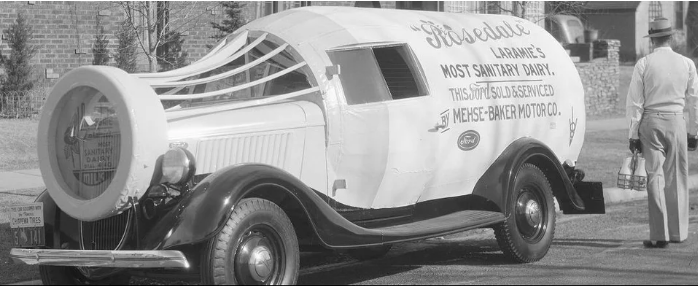
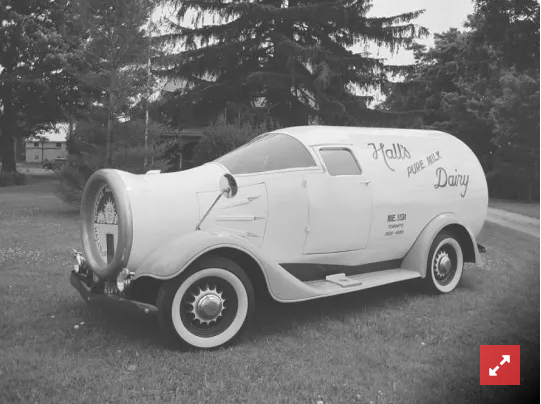
Posted By: Paul - Wed Sep 15, 2021 -
Comments (0)
Category: Motor Vehicles, Advertising, Twentieth Century
The Perma-Lift Line of Undergarments
I'm surprised no one has revived this trade name.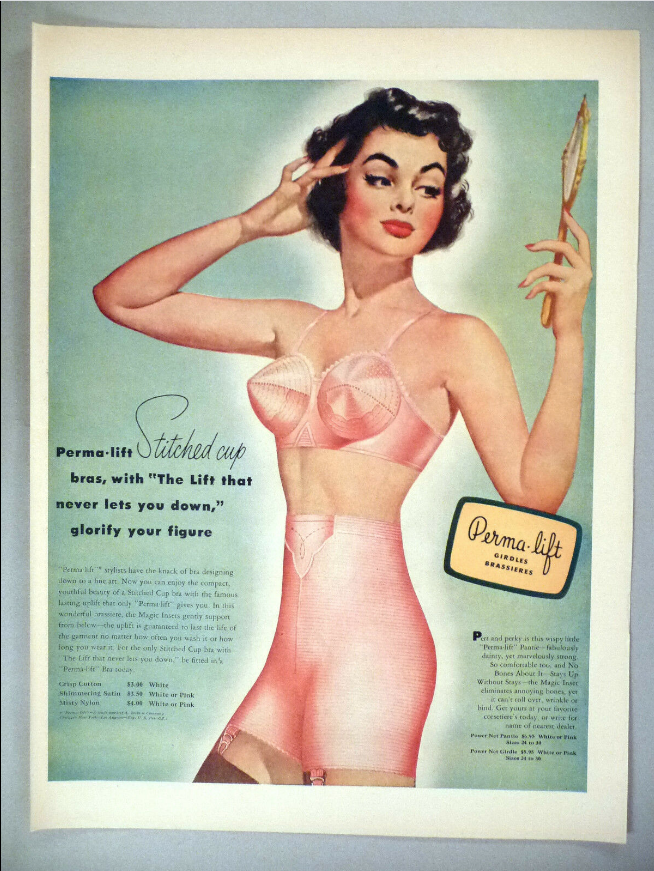
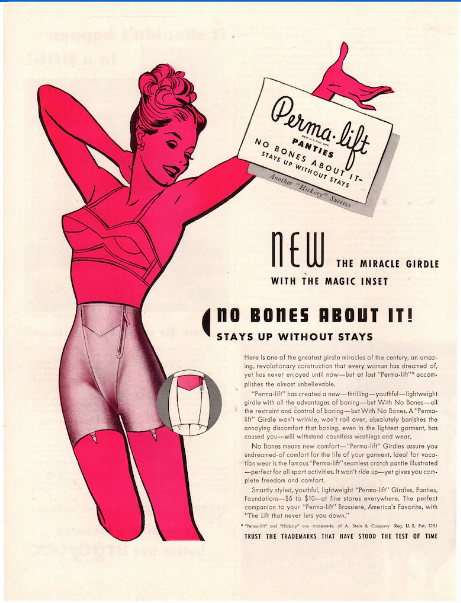
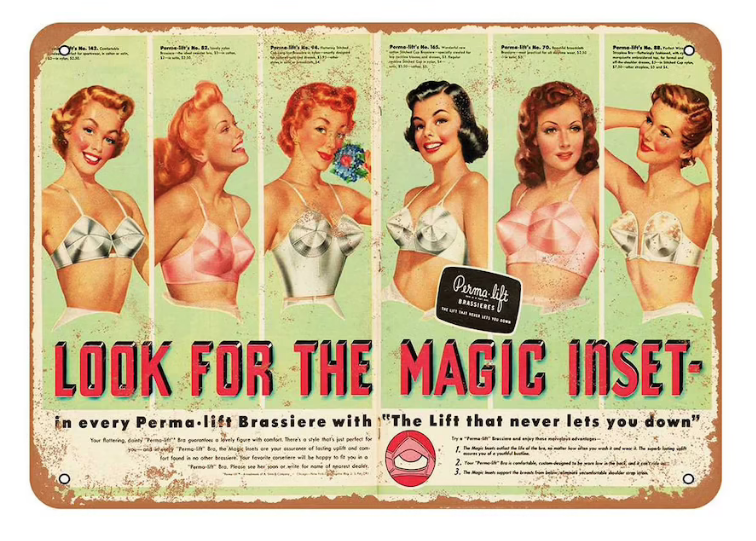
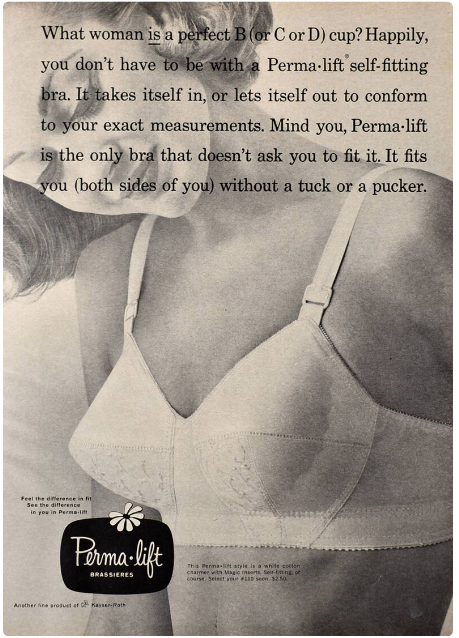
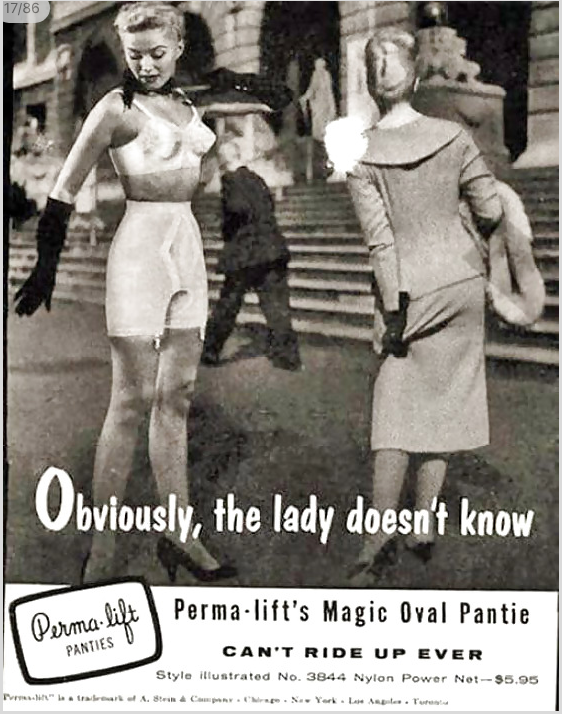
Posted By: Paul - Tue Sep 14, 2021 -
Comments (4)
Category: Advertising, Underwear, Twentieth Century
Follies of the Madmen #515
Either an eensy-teensy chopping block and cleaver, or a very large can of tuna.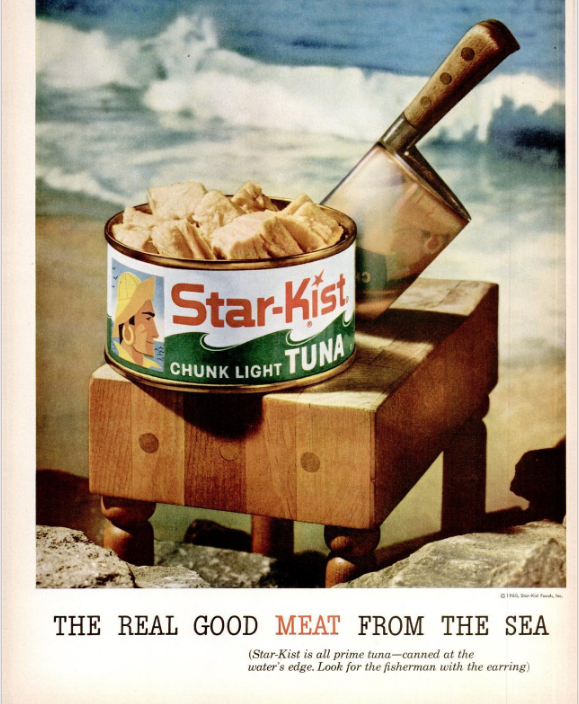
Source.
Posted By: Paul - Sun Sep 12, 2021 -
Comments (2)
Category: Business, Advertising, Enlargements, Miniatures, and Other Matters of Scale, Food, Oceans and Maritime Pursuits, 1960s
Sour Cream Cookbook Ad
We're sweet on sour cream.
Posted By: Paul - Fri Sep 10, 2021 -
Comments (1)
Category: Food, Advertising, 1950s

| Who We Are |
|---|
| Alex Boese Alex is the creator and curator of the Museum of Hoaxes. He's also the author of various weird, non-fiction, science-themed books such as Elephants on Acid and Psychedelic Apes. Paul Di Filippo Paul has been paid to put weird ideas into fictional form for over thirty years, in his career as a noted science fiction writer. He has recently begun blogging on many curious topics with three fellow writers at The Inferior 4+1. Contact Us |




